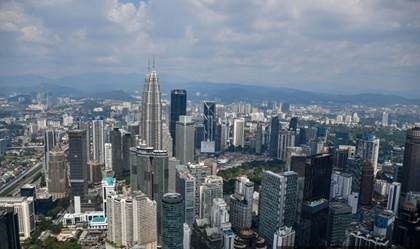
PETALING JAYA: The Malaysian economy is projected to grow at a more moderate pace of 4% in 2023, according to the World Bank.
The is down from an estimated 7.8% growth expected for 2022, the bank’s just released Global Economic Prospects report shows.
It said that after a strong rebound in 2021, growth in the East Asia and Pacific (EAP) region slowed down significantly to about 3.2% in 2022. The World Bank said the easing in the pace of growth was almost entirely on account of China’s sharp slowdown.
The people’s republic accounts for 85% of the region’s gross domestic product (GDP).Ads by
On the other hand, growth in the region excluding China doubled to 5.6% in 2022, supported by the release of pent-up demand as many countries lifted their Covid-19 restrictions.
According to the report, the estimated 2022 growth in the region excluding China was 0.8 percentage points above its June forecast, reflecting upgrades in Malaysia, the Philippines, Thailand and Vietnam.
These countries had gained from a surge in private consumption and strong growth in exports.
However, the strong growth recorded in these countries in 2022 is expected to moderate this year. Even so, Vietnam is still expected to chalk up a growth of 6.3%, the highest in the Asean region. Next is the Philippines with 5.4% and Malaysia at 4%.
The report said that a prolonged war in the Ukraine and intensifying geopolitical uncertainty could also lead to further reductions in global business and consumer confidence.
“This could lead to a sharper slowdown than projected, thanks to weaker global demand and trade disruptions,” it said. “Such disruptions could lead to shortages and higher prices for food, fertilisers and energy.”
It said economies that are heavily dependent on commodities and exports, such as Malaysia, Cambodia, Mongolia and Vietnam would be particularly vulnerable to a slowdown in demand from China.
The World Bank said unexpectedly persistent high global inflation could also prompt substantially more monetary tightening in many countries.
This, it said, could cause a sharper-than-expected slowdown in global growth and trigger significant capital outflows from emerging markets and developing economies (EMDEs). “This will add pressure on the region’s currencies and exacerbate inflation,” it added.
Malaysia is among several EMDEs that, the World Bank said, had taken measures such as modifying or suspending fiscal rule limits. Others included Namibia and Russia.
The World Bank said tighter global financial conditions could induce debt distress in highly indebted EAP countries.
“Countries with large external financing needs, reflecting either a reliance on short-term capital such as Cambodia and Malaysia, or high overall debt levels, such as Laos and Mongolia, were particularly vulnerable.
Overall, the EAP economy is projected to see a 4.3% growth in 2023, almost entirely on account of an expected rebound in China.
China lifted Covid-19 restrictions this week, reopening its borders to travellers. This is expected to result in a surge of outbound traffic from Asia’s largest economy.
The World Bank estimated that growth in China is likely to rise to 4.3% this year from 2.7% in 2022 as mobility restrictions continue to ease.
Source: https://www.freemalaysiatoday.com/category/business/2023/01/11/world-bank-sees-4-economic-growth-for-malaysia-in-2023/

